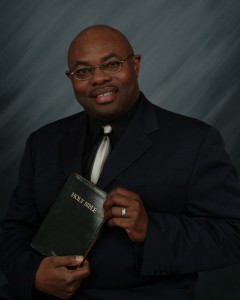
As humans, our fascination with the unknown has, since the beginning of time, led our curiosity to resolve the final destiny of mankind. The resolution of the ultimate consummation of this world has throughout history tickled the fancy of thought, imagination, and prediction. Although the eventual finale unequivocally equates to the end of humanity as we know it, we like a child picking at a sore, continue to poke ideologies, philosophies, and even supposed prophesies into our wondering of when the world will end. At first thought, it tends to incite the fear factor that exists within us, but after acknowledging the inevitable, we seek to know the conclusion of existence on earth.
The compelling determination to behold the end of the line has ushered humanity into the realm of “doomsday mania”. For centuries, people have sought to present their various theories regarding the final tick of the clock. The question is, however, are we there yet? Some of the greatest minds of history have taken a stab at answering that question, although in contrast, it has eluded their framework of thought compared with accepted truths of the Bible. In the sixteenth century, Leonardo da Vinci in his painting, Mona Lisa, and his drawings, The Virgin and Child with St. Anne, and St. John the Baptist, portray images of his doomsday prophecy. Da Vinci, when observed closely, revealed in his later work his prediction of the world ending in a catastrophic deluge. A belief that contradicts what the Bible teaches, in that after the flood of Noah’s day, God promised by the sign of the rainbow that the end will not be of water. Even the popular culture guru of prophecy, Nostradamus himself, used astrology in his predictions, and also claimed not to be a prophet. He wrote in a letter to King Henri II, in 1558, “some of the prophets predicted great and marvelous things to come: though for me, I in no way attribute to myself such a title here”. Moreover, Edgar Cayce, our modern day doomsday predictor, made end of the world predictions that stood in contradiction to Biblical teachings. In spite of Cayce being a professing Christian, his Age of Aquarius or New Age Movement, brought forth through his organization, the Association for Research and Enlightenment, have major discrepancies with what the Bible says about the end.
Finally, did the Mayan civilization get it right when they ended their “long count” calendar at 2012? First, it must be understood that the Mayans had several ways of keeping time, and the Mayan calendar as we know it was one of many. In the long count calendar of Maya, 2012 ends a calendar period (like our century, so to speak) known as b’ak’tun. The misinterpretation of the Long Count calendar is the basis for New Age belief that a cataclysm will take place on December 21, 2012; it is simply however, the day that the calendar will go to the next b’ak’tun.
In the Gospel recorded by St. Matthew, Jesus’ disciples asked Him when will the world end. His answer to them was to observe the signs He gave and ultimately said that no man knew the day nor the hour. Therefore, before we go purchasing thousands of dollars worth of doomsday gear and building safety bunkers underground, look up to Heaven and wait for His Return. For more information on doomsday prophecy, please email Pastor Williams at [email protected] or attend the Bible Study series beginning January 12th every Thursday at 7:00 pm at Macedonia Missionary Baptist Church, located at 1800 England Drive in Alexandria.









